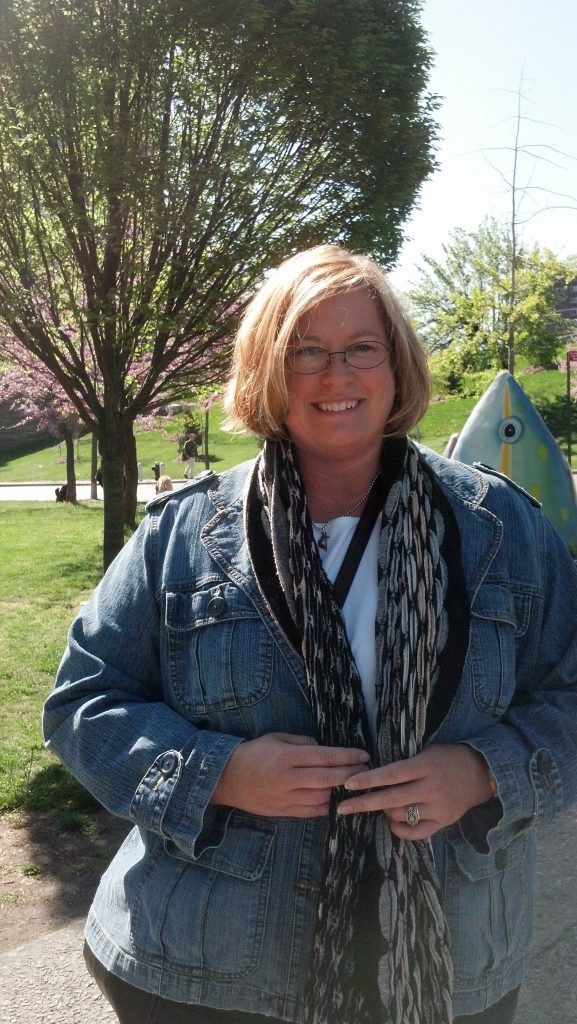Teacher Pursuing Masters Degree Poses Questions About Independence to Students
December 24, 2020

What were the risks taken by American colonists who decided to revolt from Great Britain? In October, high school juniors in Amy Parker’s two Advanced Placement American History classes wrestled with this question as they reenacted the deliberations of the New York colonial legislature in 1775 – 1776. Parker, who teaches at Gulf Breeze High School, in a beach community outside of Pensacola, Florida, is studying in Ashbrook’s Master of American History and Government (MAHG) program.

Parker led her students in a complex role-playing exercise that she learned through Professor John Moser. Parker was part of a class of teachers who reenacted historical debates, using a carefully plotted “game,” designed and vetted by a team of historians. Parker was so impressed by the exercise that she decided to try it with her own students.
Parker’s students were given roles corresponding to actual delegates of the New York legislature in 1776. Each student was handed a character description telling whether he inclined to a “Loyalist” or “Patriot” view and what he risked if he sided with those who fought for independence—perhaps a prosperous farm, perhaps a successful career as a lawyer or merchant. But before assuming their roles in the game, students needed to understand the emerging view of government that made revolution thinkable.
Our Declaration of Independence would assert that governments “derive their just powers from the consent of the governed.” Americans had absorbed the argument political philosopher John Locke, in his 1690 Second Treatise of Civil Government, elaborated for this view. Parker recruited lawyers and judges from the community to visit her class and work with groups of students as they read and analyzed Locke’s work. Students also read American documents written in the era arguing for and against independence.
Then the class convened as a legislature and debated. Periodically Parker interrupted debate to announce outside events such as British troop movements and Patriot protests that pushed them toward decision. In the end, Parker said, “one of my AP classes declared independence and the other did not. The group who opted for independence were persuaded by Thomas Paine’s passionate argument in ‘Common Sense.’ The group who decided against it wanted independence yet thought the colonies lacked the strength to resist the British, who had 30,000 troops on Staten Island ready to attack a Patriot force of 10,000. This class argued the colonists should work quietly for independence until their strength grew. Both sides presented logical, well-thought-out views.”
Exercises like this one, Parker says, “captivate students’ imaginations and push them to carefully read primary documents so that they can justify their responses to political challenges.” Parker sent Professor Moser videos of her students in vigorous debate along with speeches they wrote for each side. Afterwards, Parker said, “students told me they finally understood the struggle the Patriots had to go through.”
Parker says her own passion for teaching history has been “reignited” by study in the MAHG program. “I always felt a sense of duty to my students; I entered this field hoping to have some influence on their psychological and moral development. Now I feel a patriotic responsibility to teach history.” She finds Ashbrook professors very supportive of the frontline work she does in high school. “When I have questions, I email them, and they respond. And these are scholars who work at the top of their fields!”

